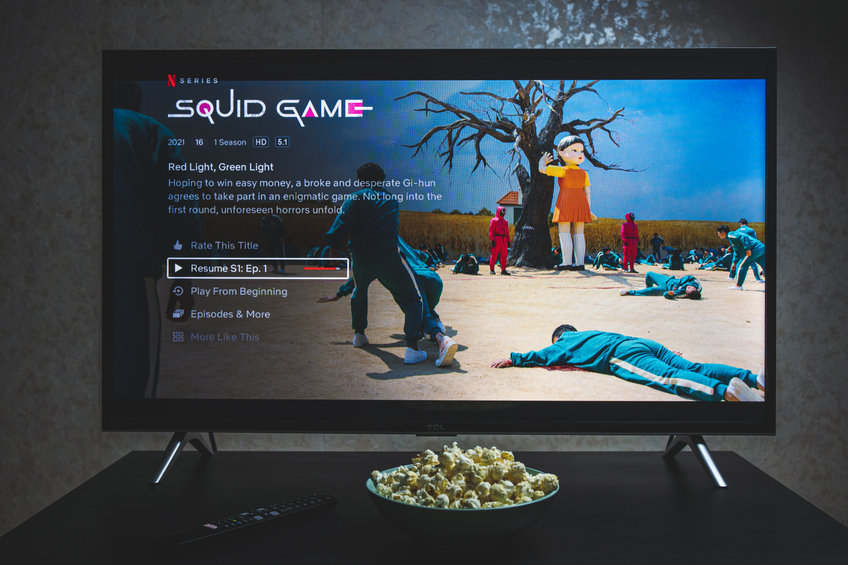Yikes. As I’m sure you heard by now, Netflix earnings didn’t exactly set the world on fire. Well, that’s not entirely true – for investors, the world certainly feels like it is burning down.
Plunging 35% following the earnings, Netflix shed a pretty staggering $50 billion in market cap. That’s a lot of money – enough to pay Netflix movie mainstay Dwayne “The Rock†Johnson for 185 years at his reported annual pay of $270 million.
Are you looking for fast-news, hot-tips and market analysis?
Sign-up for the Invezz newsletter, today.
And if you do hold shares, take solace in the fact it could have been worse – while hedge fund manager Bill Ackman is still a billionaire, he lost $400 million yesterday as he dumped 3.1 million shares. He had purchased them only three months ago. Ouch.
So, why the plunge, and where does Netflix stock go from here?
The Reasons
The headline reason for the vertical drop was the loss of 200,000 subscribers in the first quarter, below expectations of a net add of 2.5 million. It was actually the first drop in subscribers for the streaming platform in over a decade. The outlook was also bleak going forward, with the company asserting that it expected to lose a further two million subscribers in the current quarter. It also warned that revenue will lag in the short-term:
In the near term though we’re not growing revenue as fast as we’d like. COVID clouded the picture by significantly increasing our growth in 2020, leading us to believe that most of our slowing growth in 2021 was due to the COVID pull forward. Now, we believe there are four main inter-related factors at work.
Netflix earnings announcement
The first factor is password sharing. Yes, you’re not the only one leeching off your parents’ subscription. The company estimates over 100 million additional households have access to the service as a result of shared passwords. Bear in mind that the service currently has 222 million paying subscribers, so 100 million mooches is a massive chunk.
Last month, as this became more of a focus for Netflix, they announced they were trialling a crack down effort in Peru, Chile and Costa Rica. The launch grants users the ability to add sub-accounts for non-household watchers at a lower price.
The second reason for the ghastly earnings is simple – plain old competition. The crowd have caught up, after Netflix originally had the jump on conventional television. Disney+ is now well established, HBO Max have joined the party, and Hulu and Amazon Prime remain adversaries. Even YouTube TV is now taking the fight to Netflix.
Consumers have more choice, and the numbers are backing that up. For example, HBO Max captured 41.5 million subscribers in the US last year – that’s 13% of the entire population.
Saturation
It hints that Netflix may simply be too big to capture further growth in the US. Which is great on one level, but, if you’re an investor – that’s not good news.
Much of our growth will come from outside the US. Traditionally, US entertainment companies have viewed “traditional†as an export market for US content. But we saw long ago that great stories can be made anywhere and loved everywhere…To support this, we’ve been building out capabilities like creative development, personalisation, and language presentation/localisation
Netflix
Squid Game is an example of this international lean – and the global perspective will need to continue. But prices have also been raised in response to the slowing subscriber growth – at the start of the quarter it raised the standard plan $1 and the premium plan $2.
Downgraded Targets
The critics are out in full flow. Bill Ackman, as we mentioned earlier, has been the most high profile to jump ship:
“While Netflix’s business is fundamentally simple to understand, in light of recent events, we have lost confidence in our ability to predict the company’s future prospects with a sufficient degree of certainty.â€
Bill Ackman
The above quote comes only three months after he declared Netflix an “attractive valuationâ€.
Elsewhere, Canaccord Genuity lowered their price target a hefty 33%, from $600 to $400 off the back of the earnings call. Their $400 target is based off a 24X of their 2023 adjusted EBITDA estimate. Maria Ripps and a team of analysts had the following to say as they altered their target:
“We are lowering our Q2, FY22, and out year subscriber and revenue estimates to reflect the continued impact from its shutdown in Russia, increased competition, password sharing, and elevated penetration of broadband households. We are also lowering our Q2, FY22, and out year profitability estimates to reflect the aforementioned lower revenue expectations and management’s plans to preserve operating margin within the current range of 19-20% until growth reacceleratesâ€.
JP Morgan were even harsher, cutting their price target to $300 from $605.
The Wider Picture
The problems aren’t new for Netflix; rather, they have simply worsened. In January, the stock slid 20% when it announced that it expected to add a significantly smaller number of subscribers. The stock is now down 64% YTD and trading at a four-year low, with all the COVID gains wiped out. The chart below shows just what a rollercoaster ride it has been for investors, plotted against the S&P 500 (blue line).

In truth, Netflix was being valued as a company with a monopolistic presence over the industry, which is simply not the case any more. Competitors have caught up and launched streaming services of their own, and customers now have a legitimate option to cancel their subscription amid all the choice.
With a rising cost of living crisis forcing cutbacks as it is, people can now pick and choose. It’s a new paradigm, which is why Netflix is forced to look towards global markets and crack downs on password sharing as solutions to their stagnant growth.
With this context, it’s hard to disagree with analyst downgrades from $600 to the $400 (or even $300) range. A $600 target values the company at $265 billion market cap – a steep target with all the headwinds.
It’s currently trading just shy of $100 billion, which seems much more reasonable – although I’m still not rushing out to buy it, no matter how good Squid Game is.
eToro
10/10
68% of retail CFD accounts lose money





